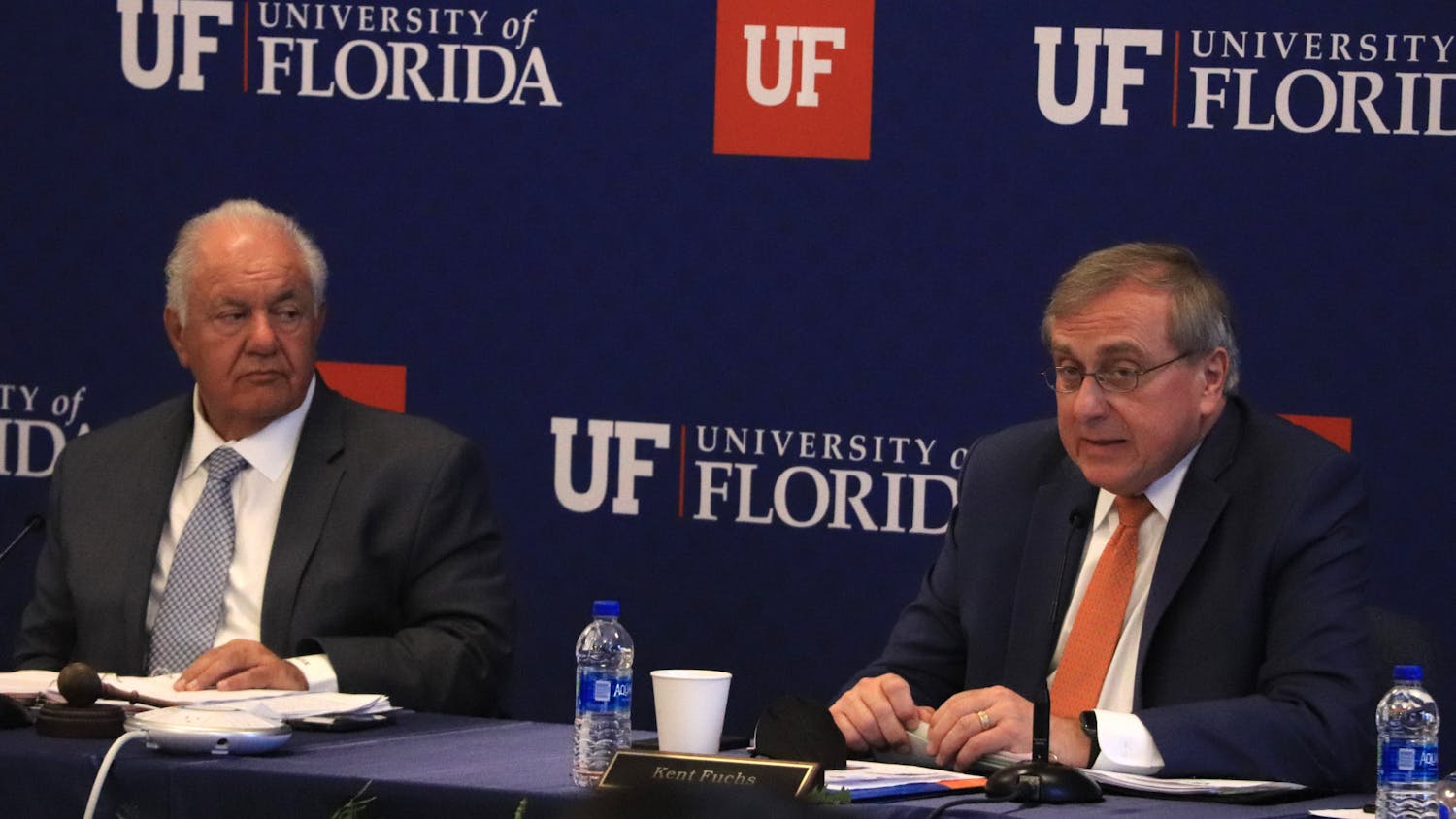As I write this at nearly 11 p.m. Thursday, it’s been only a few hours since racist Richard Spencer spoke on UF’s campus and failed miserably to divide our community.
I am immensely proud of how UF and Gainesville turned a potentially dangerous situation into a peaceful outcome worthy of emulation. The whole world was watching, and the whole world saw how we responded to a hateful and despicable bully.
It is worth noting, however, that this happened despite divisions over how we should respond. This presents an opportunity to consider some deeper issues related to hate speech, freedom of speech and financial burden and come up with some longer-term solutions.
We are united in our rejection of Spencer’s white supremacist message. We are divided on how his message can be effectively thwarted so his movement does not gain in followers and momentum.
My position is past protest strategies don’t thwart Spencer but rather provide fuel on which his racism and white supremacy will blaze brighter and hotter. We need a new strategy, or we risk winning the local battle by shutting down his speech and chasing his followers out of town — yet losing the larger war for the hearts and minds of the public, and his movement of racism and hate will grow.
First, there’s the issue of if UF should and could have banned him from speaking on our campus. Had we done that, it wouldn’t have thwarted his movement, but it would have spared us from direct exposure to him and his followers. But as long as we could provide reasonable security on campus then we could not legally bar him from renting our facilities and speaking. Fighting him in court was not an option once there was a possibility of adequate security, despite the cost.
Could we have indirectly blocked Spencer from speaking by requiring him to pay the more than $600,000 in security costs, which provided nearly 1,000 law enforcement officers across our campus? Again, the answer is simply no. This question was litigated and decided by the U.S. Supreme Court in 1992 and is known as the legal doctrine of the “heckler’s veto.”
Although answers to the first two issues are clear, an even more important issue remains. How can we thwart Spencer’s movement, not just for the few hours he was on campus, but forever?
I argue old strategies of protest, which include shutting down Spencer and chasing his followers out of town, are exactly what white supremacists need to attract attention and followers. For Spencer and his ilk, I believe the right strategy is to 1) shun the speaker, his followers and his events, and 2) as loud as possible, speak up with acts of inclusion and love and messages rejecting racism and white nationalism.
For example, members of the Lubavitch Chabad Jewish Center headed by Rabbi Berl Goldman shunned Spencer and his event, and on Thursday, courageously held a Good Deed Marathon on Turlington Plaza. Rabbi Berl Goldman said on Chabad.org, “Despite the negative energy that some people are bringing to our city on Thursday, it’s important that we do our part to counter that with random acts of love and kindness, which can chase away much of the darkness.”
UF students created #TogetherUF and held a Virtual Assembly about race relations and diversity during Spencer’s event. The assembly had twice as many participants as Spencer had tickets distributed. Those who attended the virtual assembly were shunning Spencer and instead discussed the values and truth that have power to thwart his movement.
A plane flew over the Phillips Center for the with a banner reading, “Love conquers hate! Love will prevail!” A mural on the 34th Street Wall had the word “Diversity” in an American flag with stripes representing people’s different skin colors. Children made diversity affirming chalk drawings on sidewalks.
There are many ways students, faculty and staff have stood up to white supremacists with counter messages of love and inclusion with the power to bring Spencer’s movement to an end. We are all, particularly me, learning how to most effectively counter evil with good. If you have thoughts, I would love to hear from you. My email is kent.fuchs@ufl.edu. If you would like to discuss in person, please let me know.
Kent Fuchs is the UF president.





